
Arica: The City of Eternal Spring
Arica, known as the City of Eternal Spring, is a hidden gem on the northern coast of Chile. With its mild climate and stunning beaches, Arica is an ideal destination for those seeking both relaxation and adventure. The city boasts a rich history, reflected in its many monuments, museums, and archaeological sites. One of the most iconic landmarks is the Morro de Arica, a steep hill offering panoramic views of the city and the Pacific Ocean. Visitors can explore the fascinating Chinchorro mummies, some of the oldest in the world, at the San Miguel de Azapa Archaeological Museum. For nature enthusiasts, the nearby Lauca National Park offers breathtaking landscapes, including snow-capped volcanoes, high-altitude lakes, and diverse wildlife. Arica's vibrant culture is also evident in its lively markets, where you can sample local delicacies and purchase handmade crafts. Don't miss out on the city's surf spots, renowned for their excellent waves and beautiful scenery. Whether you're a history buff, a nature lover, or simply looking to relax by the sea, Arica has something to offer everyone. The city's welcoming atmosphere and diverse attractions make it an unforgettable destination in Chile.
Local tips in Arica
- Visit the Morro de Arica early in the morning to avoid crowds and enjoy the best views.
- Bring sunscreen and a hat, as the sun can be strong even with the mild climate.
- Rent a car if you plan to visit Lauca National Park for greater flexibility and convenience.
- Try the local seafood dishes at the markets for an authentic taste of Arica.
- Learn a few basic Spanish phrases, as English is not widely spoken in Arica.
Arica: The City of Eternal Spring
Arica, known as the City of Eternal Spring, is a hidden gem on the northern coast of Chile. With its mild climate and stunning beaches, Arica is an ideal destination for those seeking both relaxation and adventure. The city boasts a rich history, reflected in its many monuments, museums, and archaeological sites. One of the most iconic landmarks is the Morro de Arica, a steep hill offering panoramic views of the city and the Pacific Ocean. Visitors can explore the fascinating Chinchorro mummies, some of the oldest in the world, at the San Miguel de Azapa Archaeological Museum. For nature enthusiasts, the nearby Lauca National Park offers breathtaking landscapes, including snow-capped volcanoes, high-altitude lakes, and diverse wildlife. Arica's vibrant culture is also evident in its lively markets, where you can sample local delicacies and purchase handmade crafts. Don't miss out on the city's surf spots, renowned for their excellent waves and beautiful scenery. Whether you're a history buff, a nature lover, or simply looking to relax by the sea, Arica has something to offer everyone. The city's welcoming atmosphere and diverse attractions make it an unforgettable destination in Chile.
When is the best time to go to Arica?
Iconic landmarks you can’t miss
Playa Chinchorro
Playa Chinchorro: A breathtaking public beach in Arica, Chile, where golden sands meet azure waters for the ultimate relaxation and adventure.
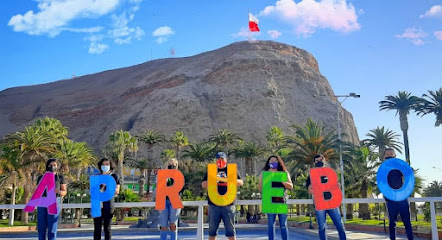
Morro de Arica
Discover breathtaking views and rich history at Morro de Arica, the ultimate observation deck in the scenic coastal city of Arica, Chile.
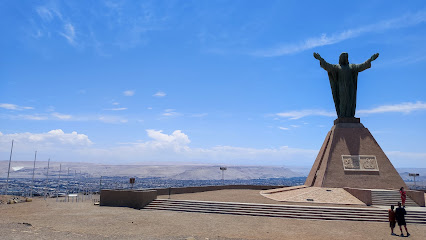
Terminal AGRO
Explore Terminal AGRO in Arica for a taste of local agriculture and fresh produce straight from the heart of Chile's farming communities.
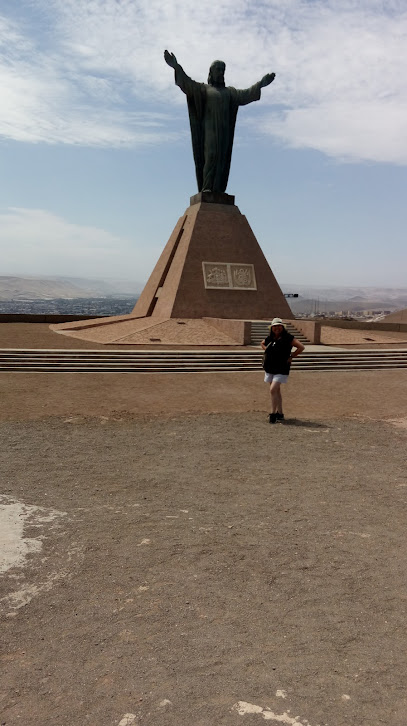
MUSEOA Arqueologico San Miguel de Azapa
Discover ancient mummies and archaeological treasures at the Museo Arqueológico San Miguel de Azapa in Arica, Chile.
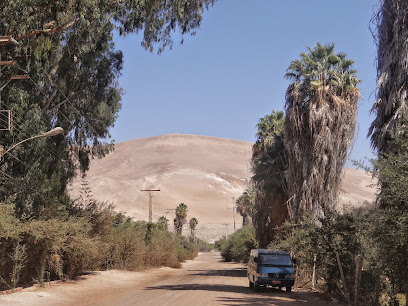
Vicuña Mackenna Square
Explore Vicuña Mackenna Square, a lush urban park in Arica bursting with culture, greenery, and local charm, perfect for relaxation and discovery.
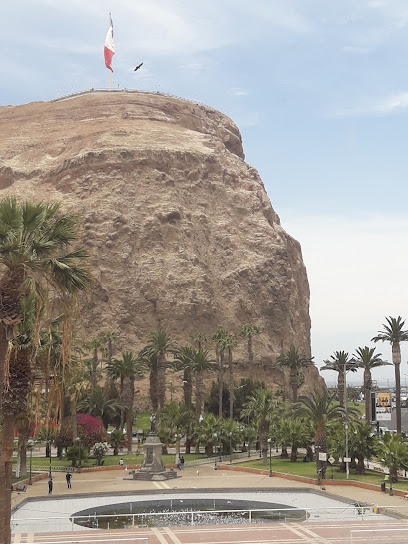
Cuevas De Anzota
Explore the breathtaking natural beauty and unique geological formations of Cuevas De Anzota, a must-visit nature preserve in Arica, Chile.
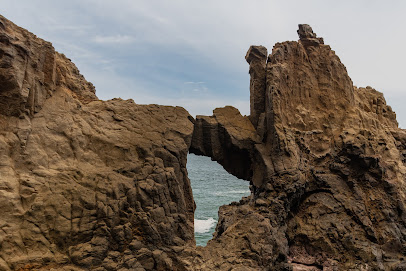
St. Mark's Cathedral, Arica
Explore St. Mark's Cathedral in Arica, a stunning architectural marvel by Gustave Eiffel, rich in history and beauty.
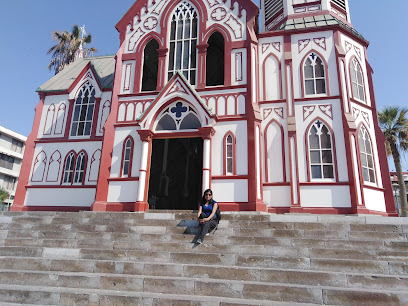
Museo de Sitio Colón 10
Explore the archaeological wonders of Museo de Sitio Colón 10, a captivating attraction in Arica, Chile, uncovering the region's rich cultural heritage.
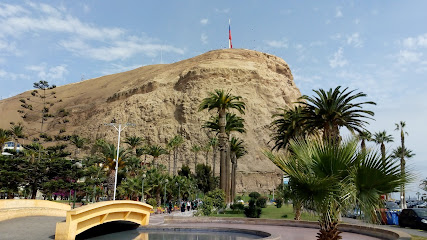
Cristo de la Concordia de Arica
Discover the breathtaking Cristo de la Concordia in Arica - a towering symbol of faith and culture with stunning panoramic views of the Pacific coast.
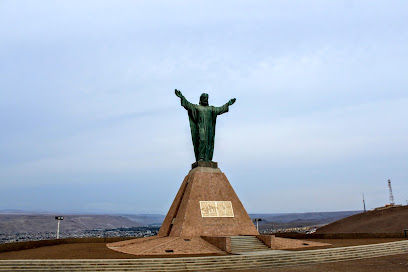
Presencias Tutelares
Monumental desert sculptures commemorating Arica's ancient cultures, offering a unique artistic and cultural experience.
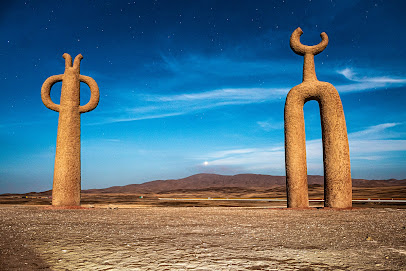
Museum of History and Weapon
Explore the Museum of History and Weapon in Arica for an unforgettable journey through Chile's rich military and cultural history.
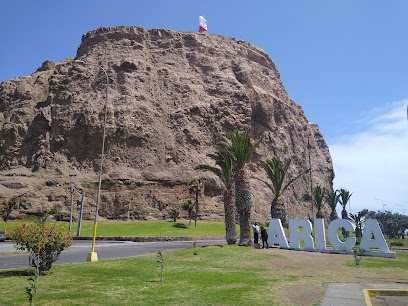
Museo del Mar de Arica
Explore the maritime heritage of Chile at Museo del Mar de Arica, where the sea's stories come alive in a captivating cultural experience.
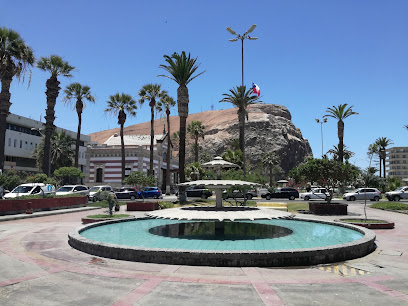
Estación de Ferrocarril Arica - Tacna
Discover the historic Estación de Ferrocarril Arica - Tacna, where the rich heritage of Chilean railways meets modern travel, offering a cultural experience for every visitor.
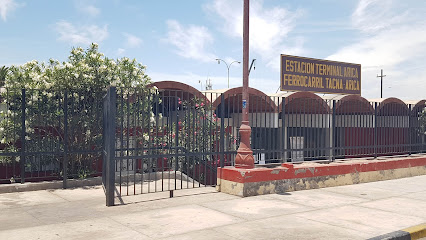
Centro de arica
Discover the flavors of Chile at Centro de Arica, where local ingredients meet warm hospitality in a charming atmosphere.
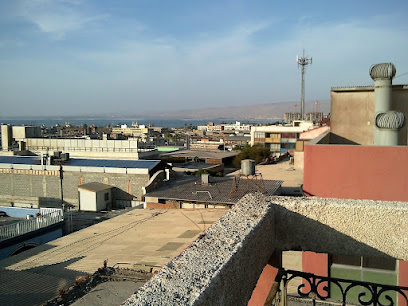
Terminal Rodoviario Arica
Your starting point for exploring northern Chile and beyond, connecting you to adventures near and far.
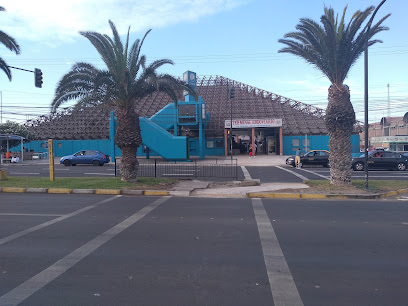
Unmissable attractions to see
Terminal ASOCAPEC
Discover the vibrant culture and local flavors at Terminal ASOCAPEC, Arica's bustling market and tourist attraction, perfect for every traveler.
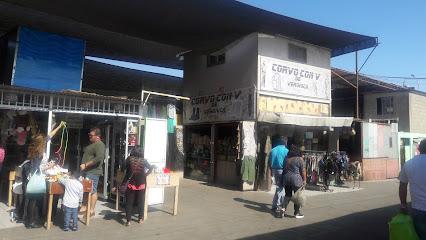
Morro de Arica
Experience breathtaking views and rich history at Morro de Arica, a must-see observation deck in northern Chile's beautiful Arica y Parinacota region.
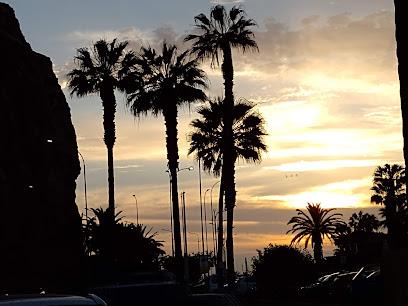
Playa La Lisera
Explore Playa La Lisera, a tranquil beach destination in Arica, Chile, known for its stunning views, soft sands, and inviting waters perfect for relaxation and adventure.
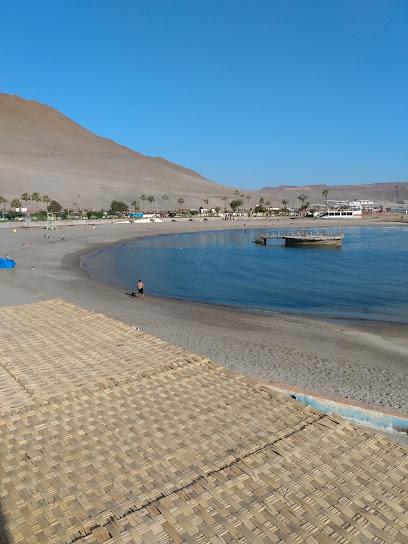
Archaeology Museum San Miguel de Azapa
Explore the depths of Chile's ancient history at the Archaeology Museum San Miguel de Azapa, where every artifact tells a story.
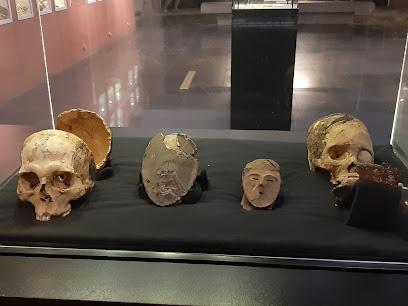
Cuevas De Anzota
Discover the breathtaking beauty of Cuevas De Anzota, a stunning natural wonder in Arica, Chile, perfect for nature lovers and adventure seekers alike.
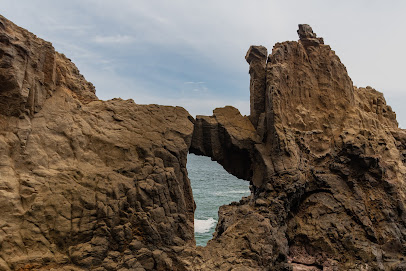
St. Mark's Cathedral, Arica
Discover the stunning St. Mark's Cathedral in Arica, a neo-Gothic masterpiece rich in history and spiritual significance.
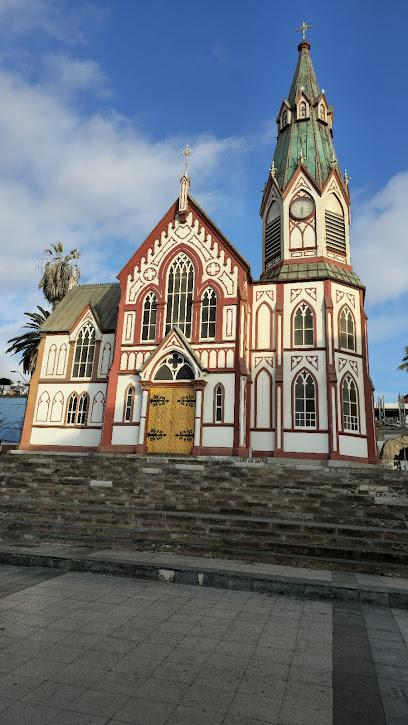
Parque Nacional Lauca
Discover the breathtaking landscapes and rich biodiversity of Parque Nacional Lauca, a must-visit national park in the heart of Chile's Andes.
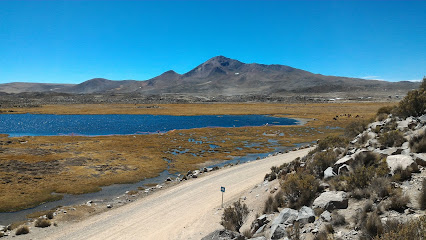
Museo de Sitio Colón 10
Explore the archaeological wonders of Museo de Sitio Colón 10 in Arica, where ancient history comes alive through captivating exhibits and artifacts.
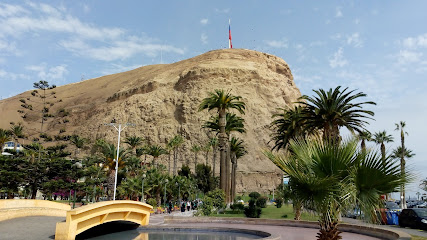
Parque Brasil
Explore the lush landscapes and vibrant atmosphere of Parque Brasil, a serene urban oasis in the heart of Arica, Chile.
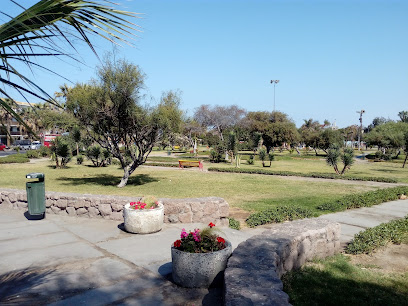
Lauca Park
Discover the breathtaking landscapes and rich wildlife of Lauca Park in Arica, a hidden gem for nature lovers and adventure enthusiasts.
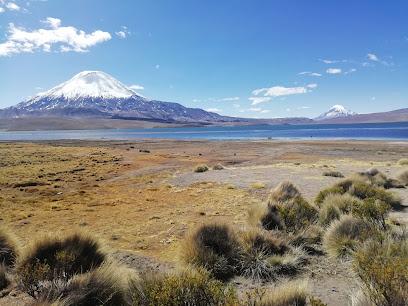
Artisanal village Arica
Explore the vibrant Artisanal Village in Arica, where local craftsmanship meets cultural heritage in a colorful marketplace.
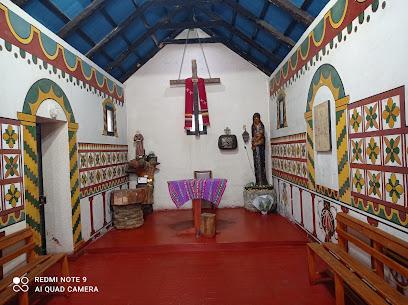
Museum of History and Weapon
Discover the captivating stories of Arica's past at the Museum of History and Weapon, where history comes alive through fascinating exhibits and artifacts.
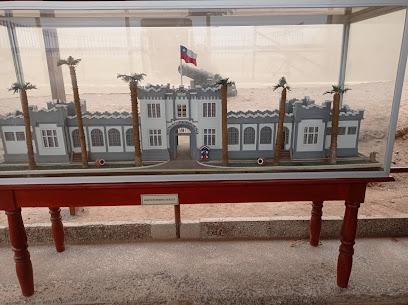
Rio Lluta Humedal
Explore the enchanting Rio Lluta Humedal, a wildlife refuge in Arica, Chile, where diverse ecosystems and vibrant birdlife await your discovery.
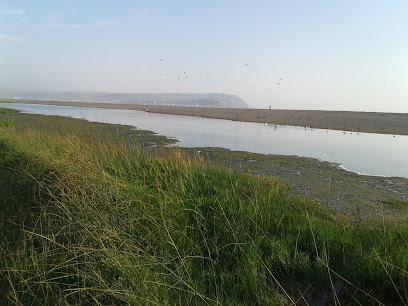
Museo del Mar de Arica
Discover the maritime treasures of Arica at Museo del Mar, where history, culture, and conservation meet in a stunning coastal setting.
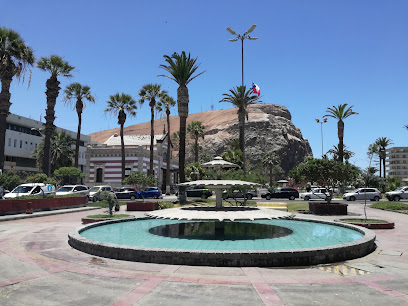
Cervecería Amauta
Discover the vibrant flavors of Arica at Cervecería Amauta, a microbrewery celebrating the art of craft beer in a lively atmosphere.

Essential places to dine
Dimango
Discover the vibrant flavors of Chile at Dimango in Arica - where local ingredients meet international cuisine.
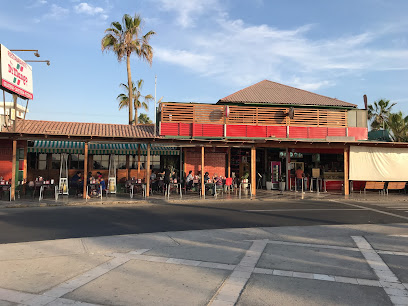
Café Del Mar
Discover culinary bliss at Café Del Mar in Arica – where delicious food meets stunning ocean views.
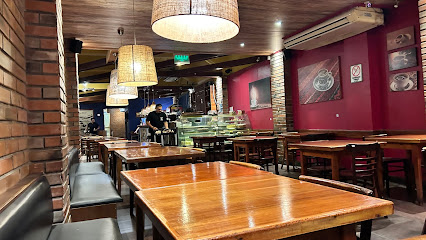
Rayú Restaurante
Discover exquisite Chilean cuisine at Rayú Restaurante in Arica - where tradition meets innovation in every dish.
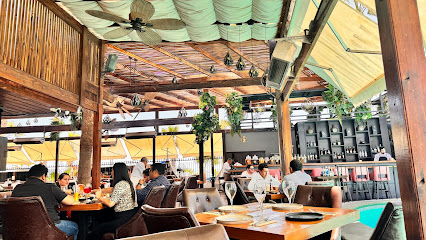
Restaurant Maracuyá
Experience exquisite seafood dining with stunning coastal views at Restaurant Maracuyá in Arica.
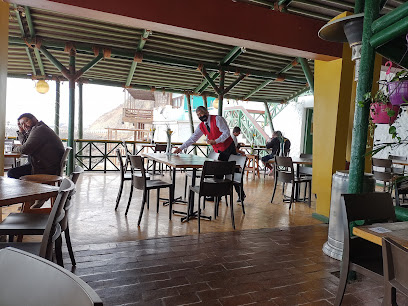
Restaurant Tuto Beach
Experience authentic Chilean cuisine with breathtaking ocean views at Restaurant Tuto Beach in Arica.
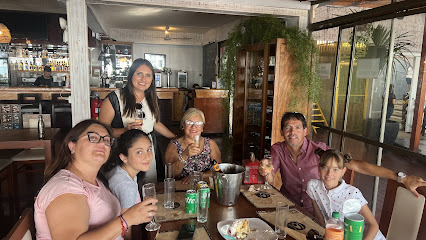
Akwa Peruano Japones
Discover Akwa Peruano Japones: A Culinary Fusion of Peruvian and Japanese Flavors in Arica y Parinacota.
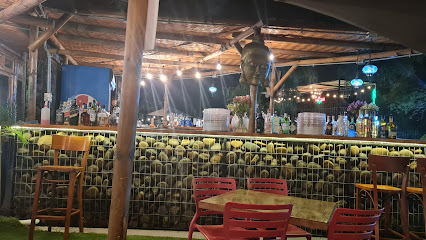
Restaurant República de Arica
Experience authentic Chilean cuisine at Restaurant República de Arica – a must-visit dining spot in the heart of northern Chile.
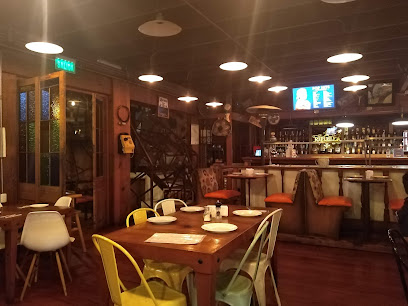
Mojito Arica
Discover Mojito Arica: A vibrant gastropub offering innovative cuisine and lively atmosphere in the heart of Chile's coastal gem.
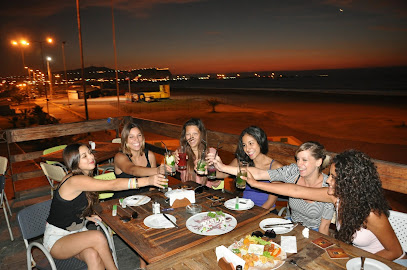
Medina's Restaurant Gourmet
Experience authentic Chilean cuisine at Medina's Restaurant Gourmet in Arica - where every meal is a celebration of flavor.
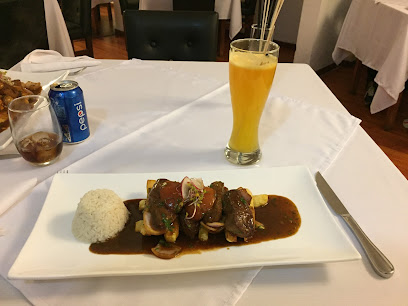
Restaurante Oveja negra
Discover exquisite Chilean cuisine at Restaurante Oveja Negra in Arica - where local flavors meet exceptional dining.
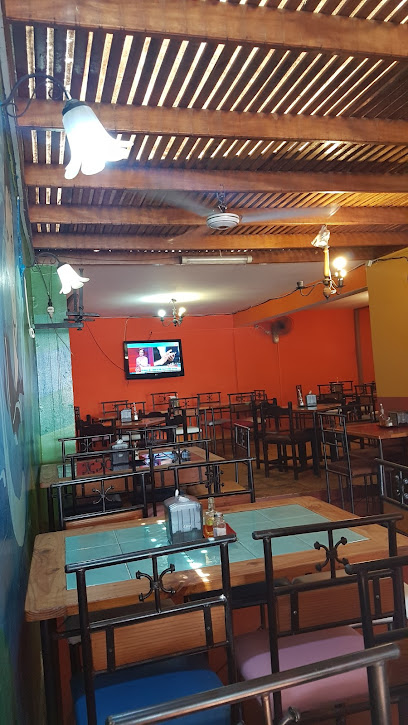
La Posta
Discover the taste of Chile at La Posta, where exquisite grilled dishes meet warm hospitality in the heart of Arica.
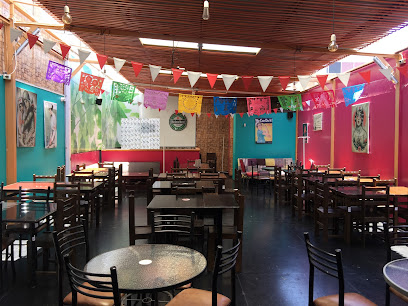
Los aleros de 21
Experience the vibrant flavors of Arica at Los Aleros de 21 – where local ingredients meet culinary excellence.
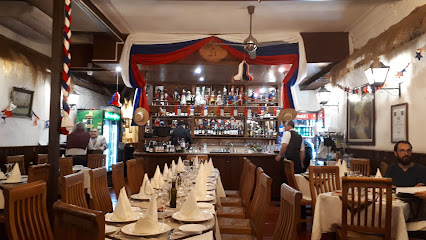
Restaurante DON FLORO
Experience the rich flavors of Chile at Restaurante DON FLORO - where traditional meets modern cuisine in Arica.
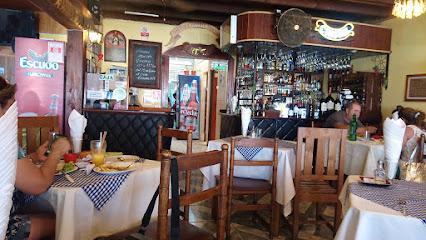
Restaurante El CHALÁN y compañía limitada
Experience authentic Peruvian cuisine at Restaurante El CHALÁN in Arica – where every dish tells a story.
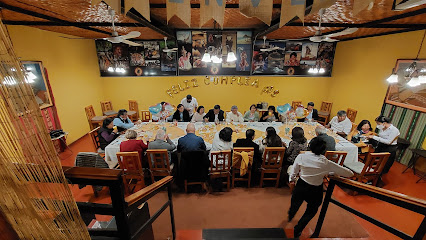
Varo's Restaurant
Discover the rich flavors of Chile at Varo's Restaurant in Arica – perfect for families and special celebrations.
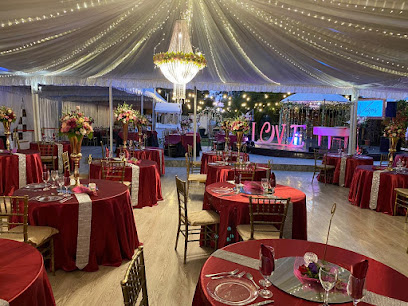
Markets, malls and hidden boutiques
Mall Plaza Arica
Discover a vibrant shopping experience at Mall Plaza Arica, where local culture meets global brands in a stunning coastal setting.

Terminal ASOCAPEC
Discover the lively Terminal ASOCAPEC, a vibrant market in Arica offering local culture, delicious food, and unique shopping experiences.
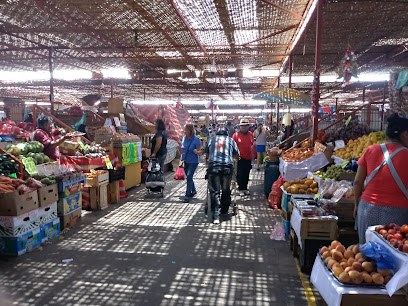
Paris Arica
Explore Paris Arica in Arica, Chile – Your one-stop home goods store for stylish clothing and furniture for the entire family.
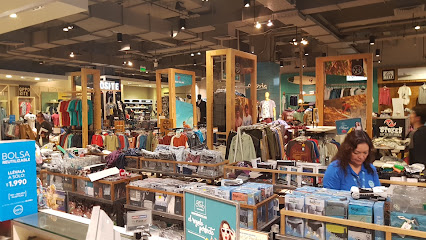
Mercado Benedicto
Experience the lively atmosphere of Mercado Benedicto in Arica, where local flavors and vibrant crafts await every visitor.
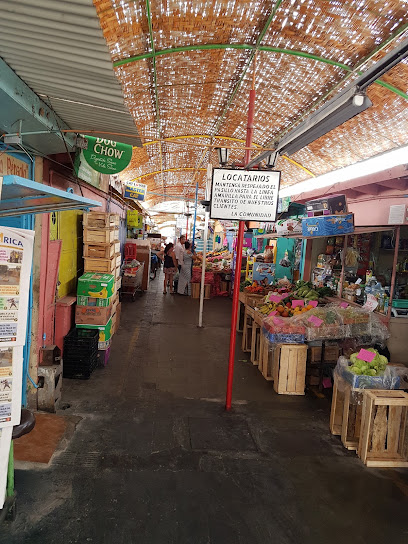
Mascotería Amiguitos
Explore Mascotería Amiguitos in Arica, a pet lover's paradise with a wide range of supplies, adorable pets, and friendly service.
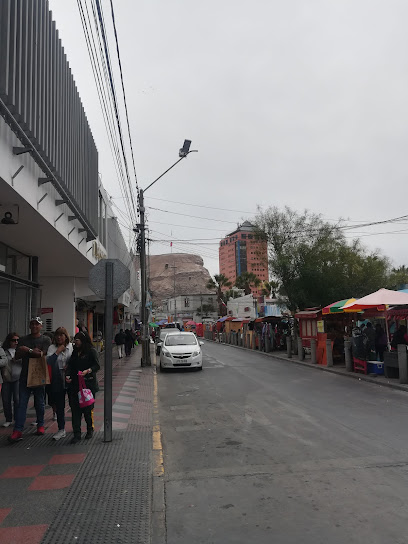
Leonardo Campodonico B y Compañía
Discover a treasure trove of literature at Leonardo Campodonico B y Compañía in Arica, where every book tells a story waiting to be explored.
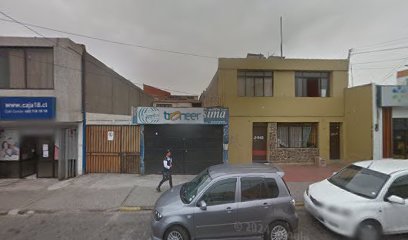
Multitelas Arica
Discover the vibrant fabrics of Multitelas Arica, a must-visit fabric store in Chile showcasing local craftsmanship and unique textiles.
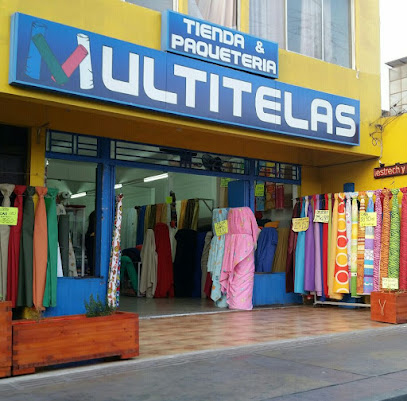
Fishing Arica
Discover Fishing Arica, your ultimate destination for top-notch fishing gear and local expertise in beautiful Arica, Chile.
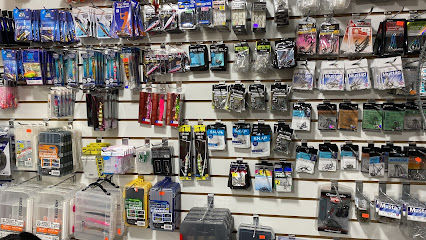
Mundo Cartas
Explore the vibrant realm of trading cards at Mundo Cartas in Arica, where enthusiasts gather to collect, trade, and play.
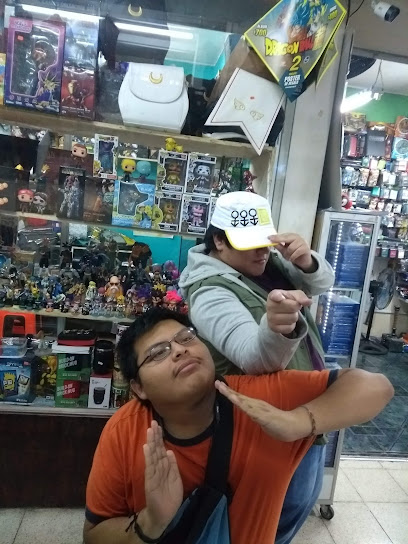
Maicao
Explore the captivating world of fragrances at Maicao, Arica's premier perfume store offering an exquisite selection of scents for every occasion.
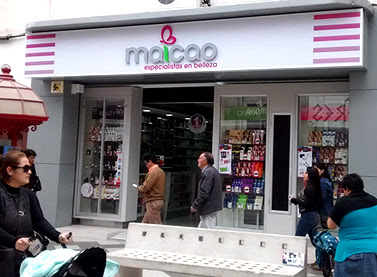
Sótano Sónico
Experience the vibrant music culture at Sótano Sónico, Arica's beloved record store with an extensive vinyl collection and lively events.
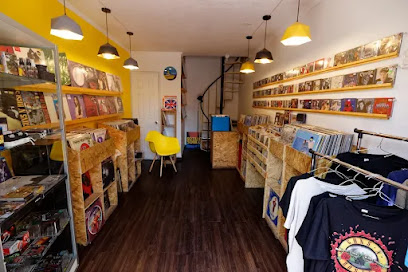
New Pirexia
Explore New Pirexia in Arica, Chile: A gaming paradise offering the latest video games, board games, and a vibrant community atmosphere.
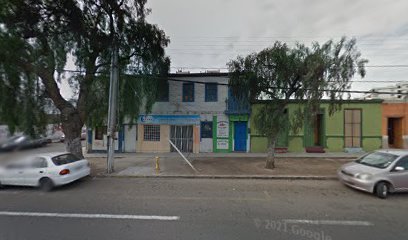
ONLYGAMES
Discover ONLYGAMES in Arica, a vibrant game store offering a wide range of video games, consoles, and accessories for gamers of all levels.
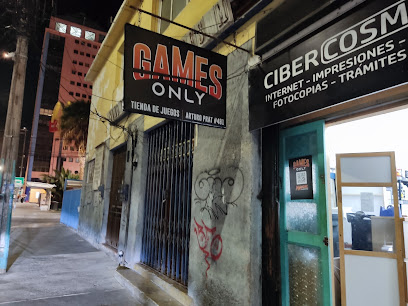
Krater
Explore Krater, an exquisite clothing store in Arica, where local fashion meets coastal charm, perfect for every style enthusiast.

CASA VENUS LIBRERIA
Discover CASA VENUS LIBRERIA, a unique bookstore in Arica blending literature and culinary treasures for an unforgettable visit.
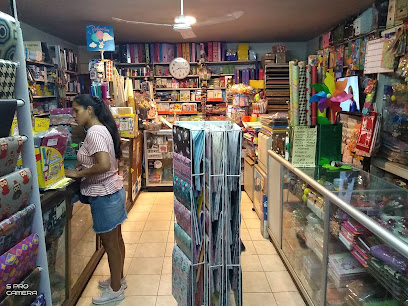
Essential bars & hidden hideouts
Mojito Arica
Discover the vibrant flavors of Arica at Mojito Arica, a must-visit gastropub blending local cuisine with a lively atmosphere.
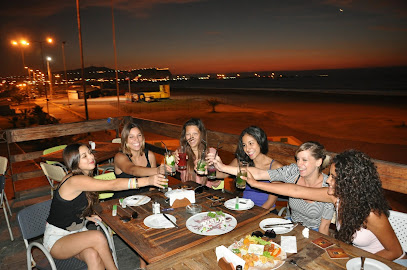
Arica Restobar
Experience the vibrant nightlife and delicious cuisine at Arica Restobar, a must-visit destination in Arica, Chile.
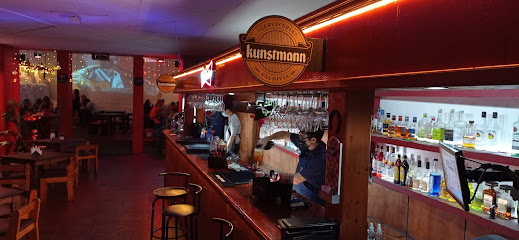
Romy bar restaurant
Experience the essence of Arica at Romy Bar Restaurant, where exceptional grilled dishes meet a vibrant atmosphere for an unforgettable dining experience.
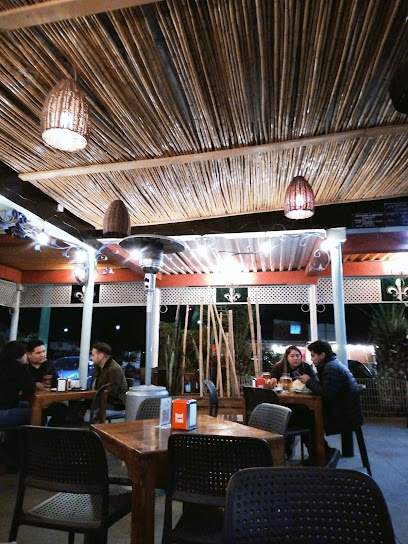
Old School - Vieja Escuela Restobar
Discover the vibrant atmosphere and innovative cuisine at Old School - Vieja Escuela Restobar, a must-visit gastropub in Arica, Chile.
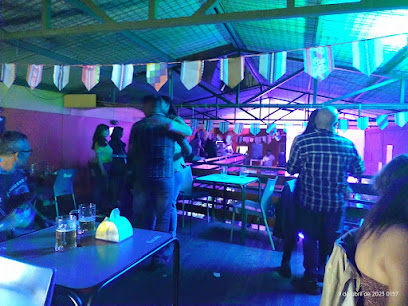
Restobar 303
Experience the vibrant flavors and lively atmosphere at Restobar 303 in Arica, where every meal is a celebration of local and international cuisine.
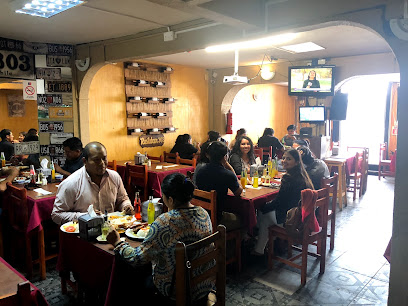
Lounge by Rayú
Relax and unwind at Lounge by Rayú, a top bar in Arica, serving exquisite drinks and a vibrant atmosphere for an unforgettable night.
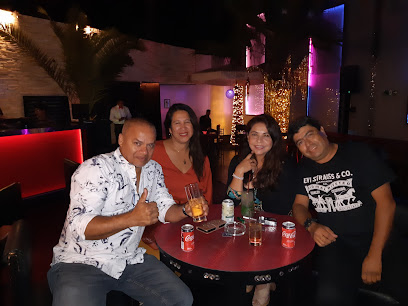
Veinte&Veinte
Experience the vibrant cocktail scene at Veinte&Veinte, Arica's top cocktail bar serving innovative drinks and delicious tapas in a lively atmosphere.
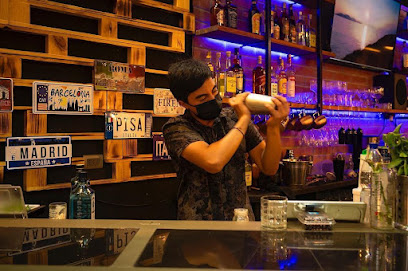
Pub karaoke Dicoteque Terrazas
Discover the heart of Arica's nightlife at Pub Karaoke Dicoteque Terrazas, where singing, dancing, and unforgettable memories await.
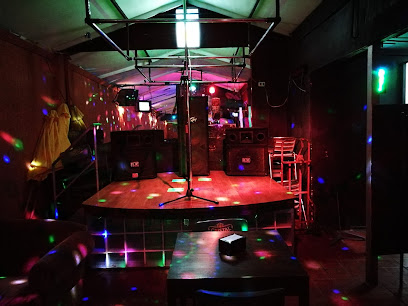
Naif Classic Bar
Discover Arica's nightlife at Naif Classic Bar, where live music, delicious food, and a vibrant atmosphere come together for an unforgettable experience.
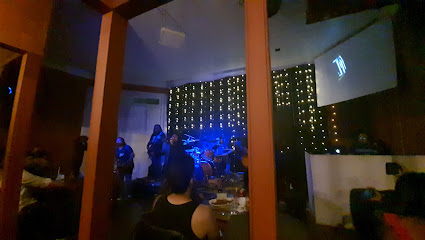
Terrazamestiza
Discover Terrazamestiza, a vibrant bar in Arica offering stunning ocean views, delicious cocktails, and a lively atmosphere perfect for travelers.
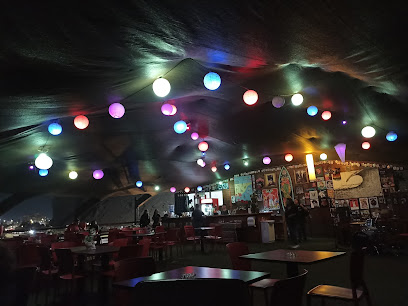
La Santa
Discover La Santa, the premier gastropub in Arica, offering a fusion of local flavors and vibrant atmosphere for an unforgettable dining experience.
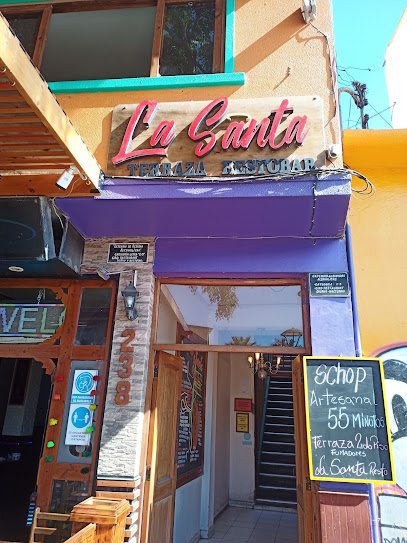
Bar 514
Experience the lively atmosphere and rich flavors at Bar 514, a top destination for nightlife in Arica, perfect for tourists looking to unwind.
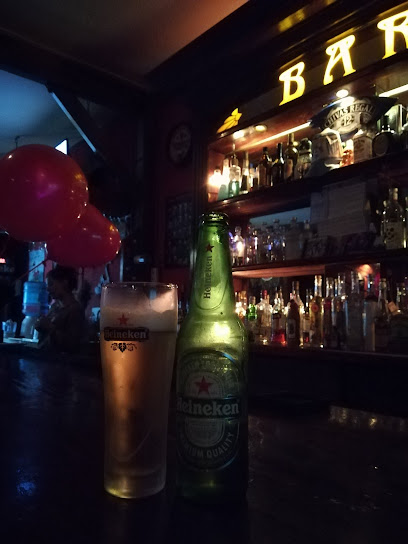
Tacuba Pub Bar
Discover the vibrant Tacuba Pub Bar in Arica, where local flavors and lively ambiance create the perfect spot for relaxation and fun.
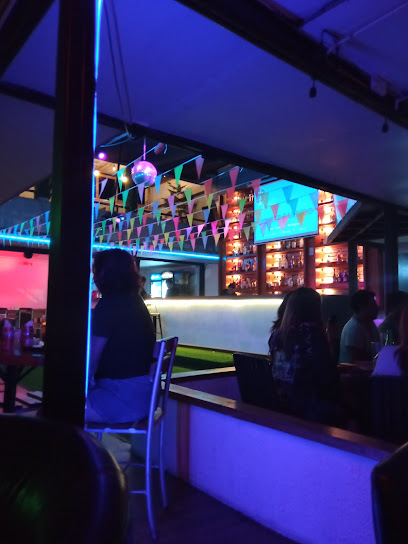
Deja Vu Pub
Discover the lively atmosphere of Deja Vu Pub in Arica, Chile, where locals and tourists come together to enjoy great drinks and entertainment.
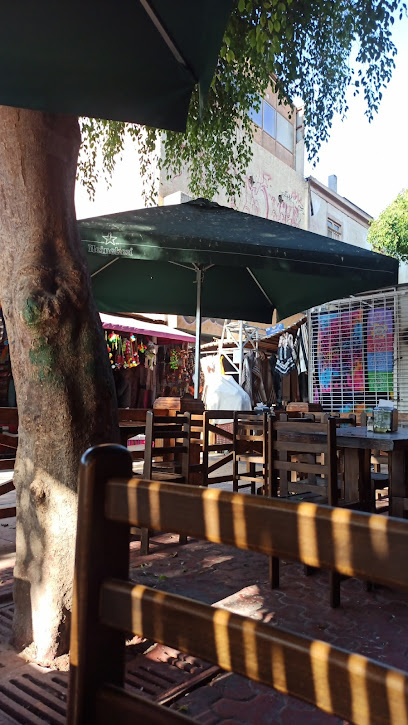
Local Phrases
-
- HelloHola
[oh-lah] - GoodbyeAdiós
[ah-dee-ohs] - YesSí
[see] - NoNo
[no] - Please/You're welcomePor favor/De nada
[por fah-vor/deh nah-dah] - Thank youGracias
[grah-see-ahs] - Excuse me/SorryPerdón/Lo siento
[pehr-dohn/loh see-ehn-toh] - How are you?¿Cómo estás?
[koh-moh ehs-tahs] - Fine. And you?Bien. ¿Y tú?
[byehn. ee too] - Do you speak English?¿Hablas inglés?
[ah-blahs een-glays] - I don't understandNo entiendo
[noh ehn-tyen-doh]
- HelloHola
-
- I'd like to see the menu, pleaseMe gustaría ver el menú, por favor
[meh goos-tah-ree-ah behr ehl meh-noo, poor fah-vor] - I don't eat meatNo como carne
[noh koh-moh kahr-neh] - Cheers!¡Salud!
[sah-lood] - I would like to pay, pleaseMe gustaría pagar, por favor
[meh goos-tah-ree-ah pah-gahr, poor fah-vor]
- I'd like to see the menu, pleaseMe gustaría ver el menú, por favor
-
- Help!¡Ayuda!
[ah-yoo-dah] - Go away!¡Vete!
[veh-teh] - Call the Police!¡Llama a la policía!
[yah-mah ah lah poh-lee-see-ah] - Call a doctor!¡Llama a un doctor!
[yah-mah ah oon dohk-tohr] - I'm lostEstoy perdido/a
[ehs-toy pehr-dee-doh/dah] - I'm illEstoy enfermo/a
[ehs-toy ehn-fehr-moh/dah]
- Help!¡Ayuda!
-
- I'd like to buy...Quisiera comprar...
[kee-syeh-rah kohm-prahr] - I'm just lookingSólo estoy mirando
[soh-loh ehs-toy mee-rahn-doh] - How much is it?¿Cuánto cuesta?
[kwan-toh kwehs-tah] - That's too expensiveEso es demasiado caro
[eh-soh ehs deh-mah-see-ah-doh kah-roh] - Can you lower the price?¿Puede bajar el precio?
[pweh-deh bah-hahr ehl preh-see-oh]
- I'd like to buy...Quisiera comprar...
-
- What time is it?¿Qué hora es?
[keh oh-rah ehs] - It's one o'clockEs la una
[ehs lah oo-nah] - Half past (10)Las diez y media
[lahs dyehs ee meh-dee-ah] - MorningMañana
[mah-nyah-nah] - AfternoonTarde
[tahr-deh] - EveningNoche
[noh-cheh] - YesterdayAyer
[ah-yehr] - TodayHoy
[oy] - TomorrowMañana
[mah-nyah-nah] - 1Uno
[oo-noh] - 2Dos
[dohs] - 3Tres
[trehs] - 4Cuatro
[kwah-troh] - 5Cinco
[seen-koh] - 6Seis
[says] - 7Siete
[syeh-teh] - 8Ocho
[oh-choh] - 9Nueve
[nweh-veh] - 10Diez
[dyehs]
- What time is it?¿Qué hora es?
-
- Where's a/the...?¿Dónde está...?
[dohn-deh ehs-tah] - What's the address?¿Cuál es la dirección?
[kwal ehs lah dee-rehk-syon] - Can you show me (on the map)?¿Puede mostrarme (en el mapa)?
[pweh-deh mohs-trar-meh (ehn ehl mah-pah)] - When's the next (bus)?¿Cuándo es el próximo (autobús)?
[kwan-doh ehs ehl proh-ksee-moh (ow-toh-boos)] - A ticket (to ....)Un boleto (para ....)
[oon boh-leh-toh (pah-rah)]
- Where's a/the...?¿Dónde está...?
History of Arica
-
The region of Arica has been inhabited for thousands of years. The earliest known settlers were the Chinchorro people, who lived in the area as early as 7000 BCE. They are renowned for their mummification practices, which predate those of ancient Egypt.
-
Arica was officially founded by the Spanish in 1541. It became a crucial port for the Spanish Empire, particularly for the export of silver from the Potosí mines in Bolivia. The city's strategic location made it a key point of interest during the colonial period.
-
Arica played a significant role during the War of the Pacific (1879-1884). The Battle of Arica, fought on June 7, 1880, was a decisive conflict in which Chilean forces captured the city from Peru. This event led to Arica becoming part of Chile under the Treaty of Ancón in 1883.
-
During the 20th century, Arica saw significant economic and infrastructural development. The city became a free port in 1953, which spurred growth and attracted businesses. The establishment of various industries, including fishing and agriculture, further boosted the local economy.
-
Arica is a vibrant cultural hub with a diverse population. The city is known for its Afro-Chilean community, which has contributed to its rich cultural tapestry. Festivals, music, and dance reflect the blend of indigenous, African, and European influences that characterize Arica.
-
Today, Arica is a bustling city that balances its historical heritage with modern amenities. It is a popular tourist destination known for its beautiful beaches, lively markets, and historical landmarks such as the Morro de Arica and the San Marcos Cathedral, designed by Gustave Eiffel.
Arica Essentials
-
Arica is served by the Chacalluta International Airport (ARI), located about 18 kilometers north of the city. There are direct flights from Santiago and other major Chilean cities. Alternatively, you can reach Arica by bus, with several long-distance bus companies offering services from Santiago, a journey that takes approximately 30 hours. The Pan-American Highway (Route 5) also connects Arica to other major cities in Chile.
-
Within Arica, public transportation options include buses and colectivos (shared taxis), which are affordable and convenient for getting around the city. Taxis are also widely available. For more flexibility, consider renting a car, especially if you plan to explore surrounding areas such as the Lauca National Park or the Azapa Valley. Bicycles are also a great option for exploring the city's coastal areas.
-
The official currency in Chile is the Chilean Peso (CLP). Credit and debit cards are widely accepted in hotels, restaurants, and larger stores. It's advisable to carry some cash for smaller establishments, markets, and local transportation. ATMs are plentiful in Arica, but be mindful of transaction fees and ensure your bank cards are set up for international use.
-
Arica is generally considered safe for tourists. However, as with any travel destination, it's important to stay vigilant. Avoid displaying valuables and be cautious in crowded areas such as markets and bus terminals. Some neighborhoods, particularly on the outskirts of the city, have higher crime rates. It's best to consult locals or your accommodation for current safety advice.
-
In case of emergency, dial 133 for the police, 131 for an ambulance, and 132 for the fire department. The main hospital in Arica is the Dr. Juan Noé Crevani Hospital, which provides emergency medical services. Pharmacies are widely available for minor health issues. It's recommended to have travel insurance that covers medical emergencies.
-
Fashion: Do dress comfortably and casually, but avoid overly revealing clothing. Beachwear is appropriate at the beach but not in the city. Religion: Do respect local customs and traditions. When visiting churches, dress modestly and remove hats. Public Transport: Do have small change ready for bus fares and be prepared for crowded conditions during peak hours. Don't engage in loud conversations or eat on public transport. Greetings: Do greet people with a handshake and a smile. It's customary to say 'buenos días' (good morning) or 'buenas tardes' (good afternoon). Eating & Drinking: Do try local dishes and seafood, which Arica is famous for. Don't leave food on your plate, as it may be considered wasteful.
-
For an authentic experience, visit the local markets such as the Mercado Colón, where you can find fresh produce, seafood, and local crafts. Spend time at the beaches like Playa Chinchorro and Playa La Lisera. Engage with the locals; they are known for their friendliness and hospitality. Don't miss the chance to explore the historical sites such as the Morro de Arica and the San Marcos Cathedral. Early morning or late afternoon are the best times to enjoy the coastal boardwalk (Costanera) to avoid the midday heat.
Trending Landmark in Arica
-
Playa Chinchorro
-
Morro de Arica
-
Terminal AGRO
-
MUSEOA Arqueologico San Miguel de Azapa
-
Vicuña Mackenna Square
-
Cuevas De Anzota
-
St. Mark's Cathedral, Arica
-
Museo de Sitio Colón 10
-
Cristo de la Concordia de Arica
-
Presencias Tutelares
-
Museum of History and Weapon
-
Museo del Mar de Arica
-
Estación de Ferrocarril Arica - Tacna
-
Centro de arica
-
Terminal Rodoviario Arica
Nearby Cities to Arica
-
Things To Do in Tacna
-
Things To Do in Iquique
-
Things To Do in Arequipa
-
Things To Do in Copacabana
-
Things To Do in Puno
-
Things To Do in La Paz
-
Things To Do in Uyuni
-
Things To Do in Cochabamba
-
Things To Do in Potosi
-
Things To Do in Sucre
-
Things To Do in San Pedro de Atacama
-
Things To Do in Antofagasta
-
Things To Do in Cusco
-
Things To Do in Machu Picchu
-
Things To Do in Tarija










